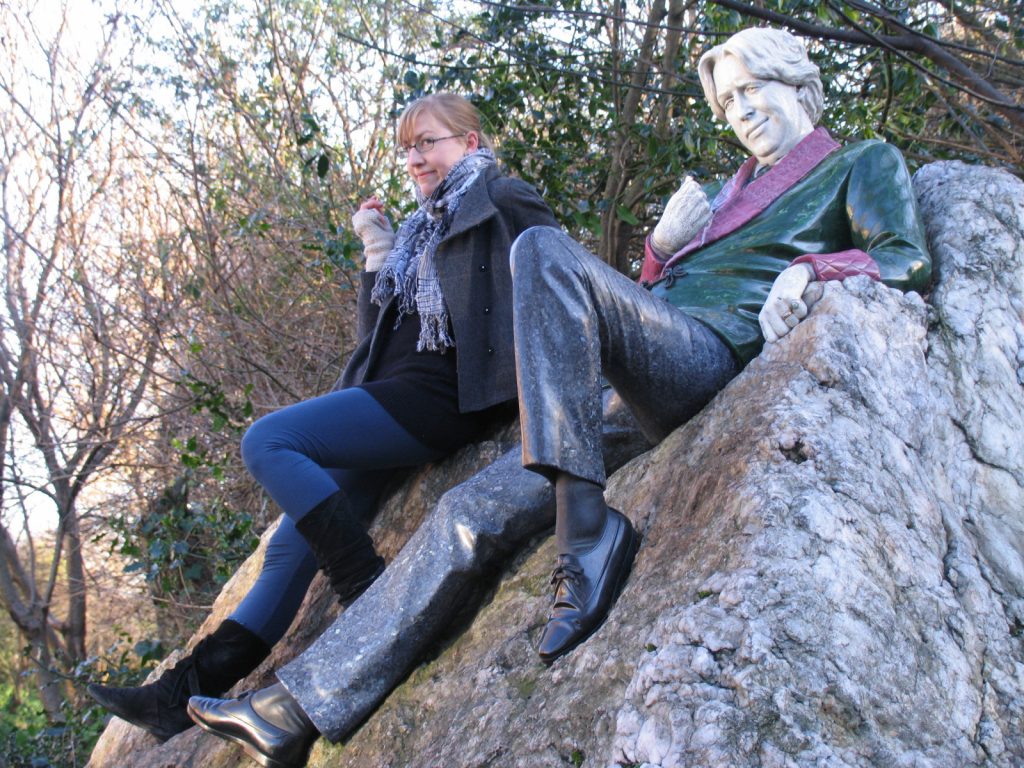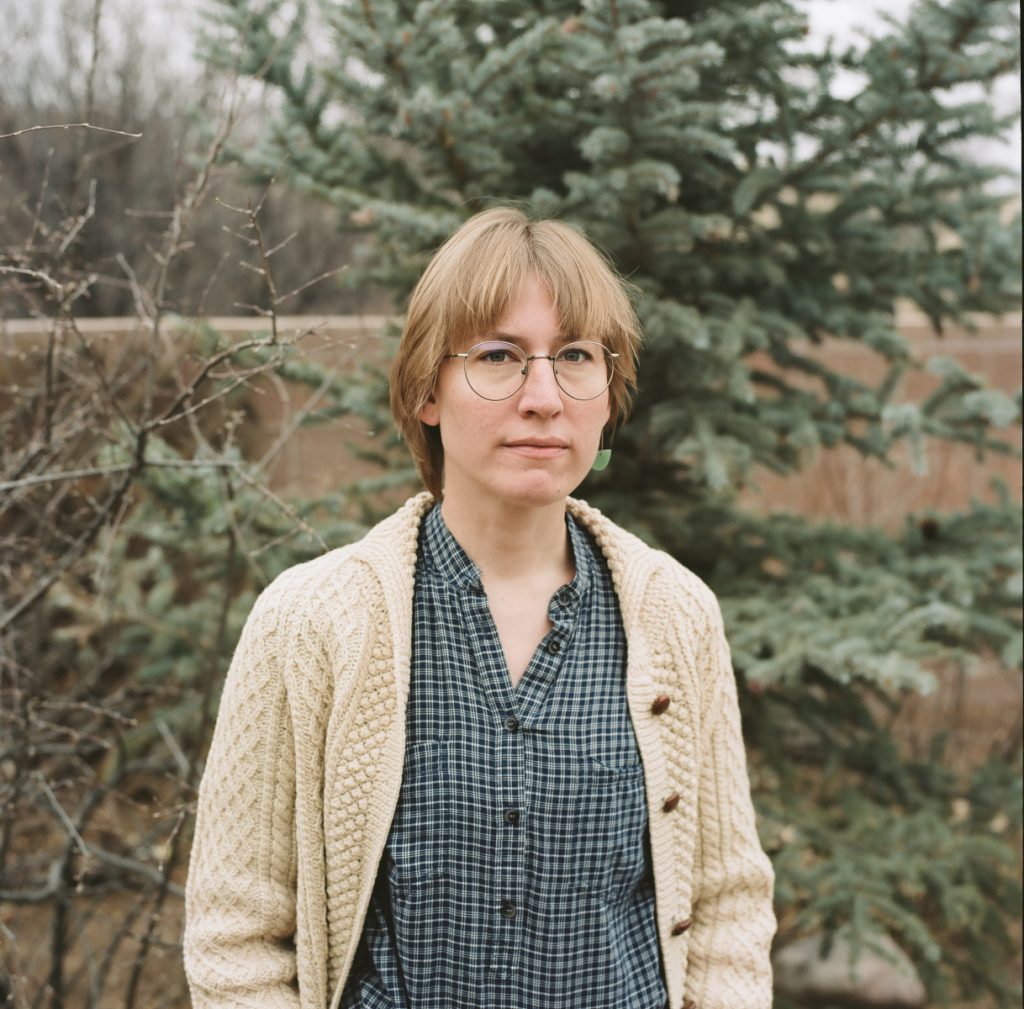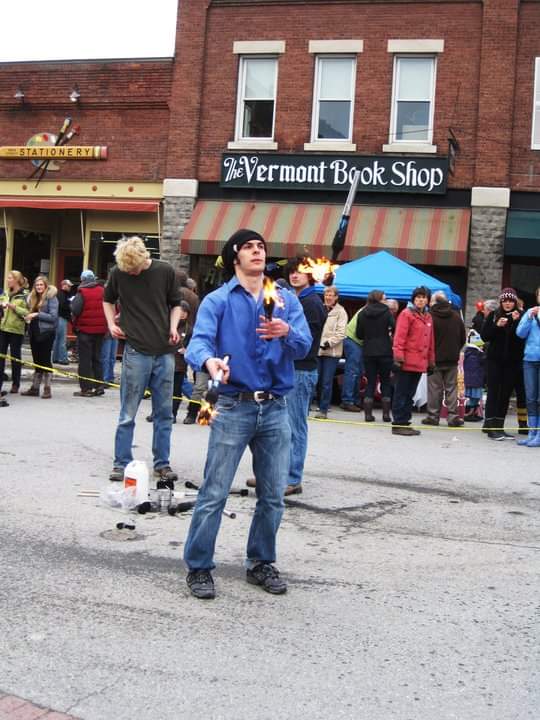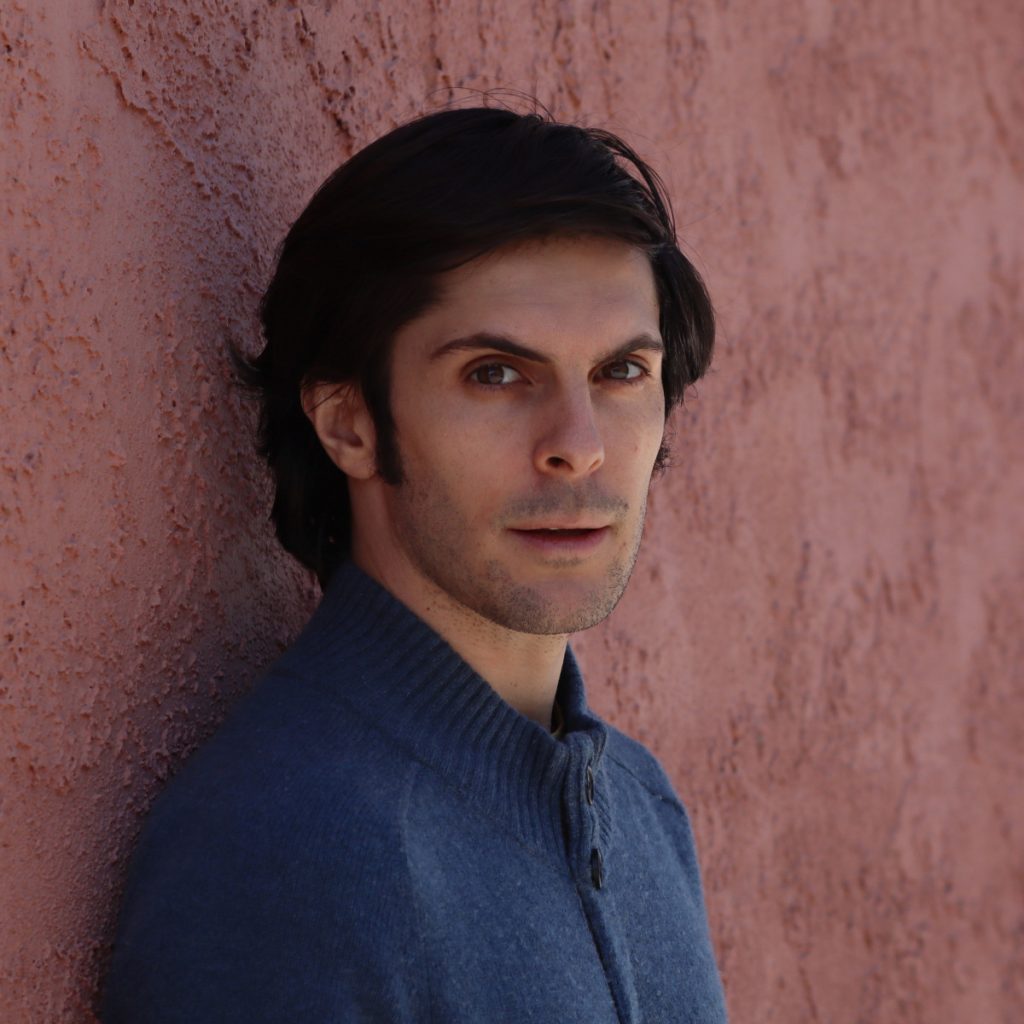NER winter intern Regina Fontanelli ’22 talks to Jenn Shapland ’08, former NER intern and current archivist and writer of My Autobiography of Carson McCullers about writing, inspiration, and her process along the way.
Jenn Shapland during her time at Middlebury College (left) and now (right).
Regina Fontanelli: Tell us briefly, where are you now, both geographically and professionally, and what were some of the steps in between?
Jenn Shapland: I am in Santa Fe, New Mexico, where I spend half my time writing and the other half working as an archivist for a visual artist. I moved here with my partner, Chelsea Weathers, in 2016 from Austin, Texas, after working at an independent bookstore called BookPeople and ending up in graduate school, getting a PhD in English at the University of Texas. While at UT I worked as an intern at the Harry Ransom Center, where I developed an interest in archives, personal effects, and Carson McCullers. I wrote my first longform essay about that job, its intimacies and peculiarities, and a series of thefts from the archives, in a piece called “Finders, Keepers” that was published in Tin House and went on to win a Pushcart Prize. Writing that essay helped me realize that I didn’t want to be an academic, but a writer.
RF: I’ve read some of your interviews about your process writing My Autobiography of Carson McCullers and it seems like it was a really personal one for you. How did you feel when the book was finally being published last year?
JS: I felt a million ways. Elated, because I had written and published my first book. I was a real writer! Exposed and vulnerable, because the writing dealt not just with Carson McCullers and her queer life, but with my own life as a queer woman, my awkward coming out narrative, and my chronic illness. Exhausted, because it took so long to finish the book, including about six months dealing with the McCullers estate’s refusal of permissions, leading to a long process of redacting and paraphrasing quotations. And nervous about my book tour, thirteen cities in three weeks, which I was very lucky to be able to squeeze in during February 2020, before the country locked down.
RF: I think a lot of writers can feel fear when it comes to breaking tradition. Were there any works that influenced or inspired you to blend memoir and biography the way you do in your book?
JS: A number of books do this, but the ones I read going into this project were: Zami: A New Spelling of My Name by Audre Lorde, which calls itself a biomythography; Suite for Barbara Loden by Nathalie Leger; Camus: A Romance by Elizabeth Hawes; Edie by Jean Stein; and Janet Malcolm’s The Silent Woman.
RF: I’ve noticed you’ve published a number of essays, and that you have one forthcoming in NER next fall. Where do you draw your inspiration—and do you have any favorite pieces?
JS: I draw the most inspiration from reading as much and as widely as I can, and then from living my life. Writing is a way to be in never-ending conversation with voices across time and space, a truth I’ve cherished over the last year at home in an isolated place. Right now I’m working on an essay collection, but it might morph into a more experimental longform work, instead of essays. I’m still figuring it out. So the nonfiction I love, lately and always, also tends to hover at the borders of the genre: Claudia Rankine’s Just Us; Cathy Park Hong’s Minor Feelings; Valeria Luiselli’s Forty Questions; Maggie Nelson’s The Argonauts; Mary Ruefle’s My Private Property; Jo Ann Beard’s The Boys of My Youth; Zadie Smith’s Feel Free; Darcy Steinke’s Menopause; Eula Biss’s Having and Being Had; Carmen Maria Machado’s In the Dream House.
RF: Do you feel like going to Middlebury has contributed to who you are as a writer?
JS: Certainly, and in unexpected ways. Most recently I realized that I drew on some of my knowledge of translation theory and an Italian short story I translated with Professor Monica Pavani while studying in Ferrara, Italy, when I was paraphrasing quotes from Carson McCullers for my book. It was a very similar, deep kind of listening, parsing each word for subtext, cadence, rhythm, sound, to try to recreate someone’s voice in my own words. My reading practice is profoundly influenced by the reading I did at Middlebury for the Literary Studies major with Professor Stephen Donadio and Ben Ehrlich. And I’m sure I draw on things I learned from reading the slush pile for NER as an intern once upon a time! I credit my ability to write a dissertation with the thesis I wrote for Professor Pavlos Sfyroeras, a Middlebury gem. The essays I’m working on now, like my dissertation on wastescapes, “Narrative Salvage,” engage with environmental damage and toxicity, and when I got to Middlebury I wanted to be an environmental science major. A semester studying corn root worms cured me of the science ambitions, but I credit Middlebury with raising my awareness and interest in climate change and more hidden environmental issues, which drives my writing today.
RF: Thank you so much, Jenn, for your sharing time, recommendations, and experience with us.



